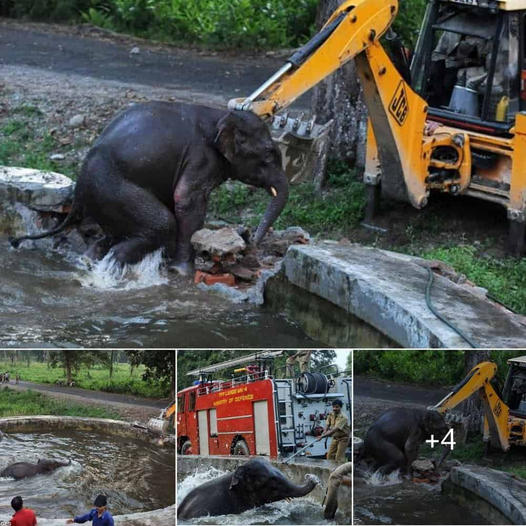In the vast, sun-drenched landscapes of Botswana’s Okavango Delta, a remarkable ritual unfolds each day as the region’s iconic African elephants gather to indulge in a time-honored tradition – the mud bath.

For these gentle giants, the opportunity to submerge themselves in the cool, nourishing mud is more than just a means of cooling off and cleansing their massive frames. It is a deeply ingrained behavior, passed down through generations, that serves as a vital part of the elephants’ holistic well-being and social fabric.
Witnessing this captivating scene firsthand is a privilege that few are afforded, but those lucky enough to observe the elephants’ mud-bathing ritual are often left in awe of the sheer grace and tenderness displayed by these majestic creatures.

“It’s truly a breathtaking sight to behold,” said wildlife photographer, Emily Thompson, who has spent years documenting the elephants of the Okavango. “The way they delicately lower themselves into the mud, taking care not to disturb the younger calves, is a testament to the incredible intelligence and emotional depth of these animals.”
Indeed, the elephants’ mud-bathing ritual is not merely a solitary endaor, but rather a deeply social event in which the herd’s matriarch and elder members take an active role in guiding and protecting the younger generations. Calves, still learning the ropes of this vital tradition, are gently coaxed and supported by their mothers and aunts, their playful splashing and joyful trumpeting creating a symphony of pure delight.

“It’s as if the elephants understand the importance of this ritual, not just for their physical well-being, but for the overall cohesion and harmony of the herd,” commented conservation biologist, Michael Thompson. “The way they care for one another, with such tenderness and patience, is truly humbling to witness.”
Beyond the sheer visual spectacle, the elephants’ mud-bathing ritual also serves a critical ecological purpose, helping to regulate the animals’ body temperature and providing a natural means of protection against parasites and skin irritations. The nutrient-rich mud, rich in minerals and essential vitamins, also acts as a natural sunscreen, shielding the elephants’ delicate skin from the harsh African sun.

“This mud-bathing behavior is an integral part of the elephants’ overall health and well-being,” added Thompson. “It’s a testament to the incredible resilience and adaptability of these magnificent creatures, and a poignant reminder of the profound interconnectedness between all living beings.”

As the sun dips below the horizon and the elephants emerge from their daily mud bath, one cannot help but feel a profound sense of connection and respect for these gentle giants. In a world that often prioritizes the pursuit of progress over the preservation of nature’s wonders, the elephants’ mud-bathing ritual stands as a powerful reminder of the beauty and fragility of our shared planet, and the crucial role we all play in safeguarding it for generations to come.




